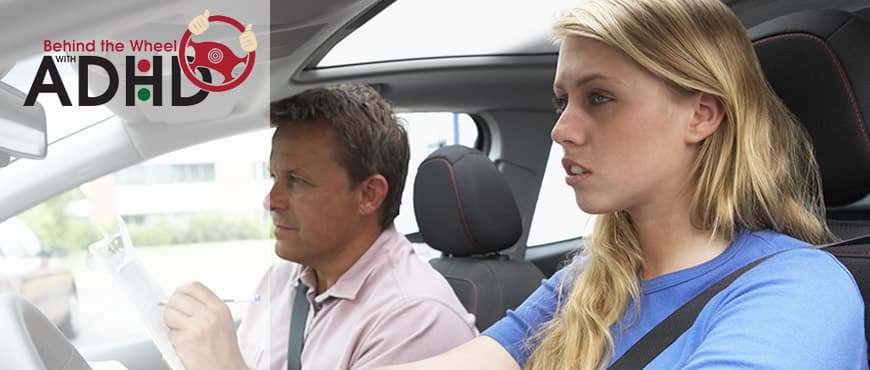ADHD And Driving: Key Findings From Vehicle Safety Research

Table of Contents
Increased Risk of Accidents for Drivers with ADHD
Research consistently demonstrates a statistically higher likelihood of accidents among drivers with ADHD compared to neurotypical drivers. Studies show a significant percentage increase in accident rates, with the specific number varying depending on the study's methodology and population. This increased risk isn't simply about more accidents; it often involves specific patterns.
- Higher rates of speeding tickets and traffic violations: Impulsivity and a reduced capacity for careful decision-making contribute to this.
- Increased involvement in rear-end collisions: Inattention and difficulty maintaining following distances are key factors.
- Difficulty maintaining lane position: This stems from challenges with sustained attention and visual processing.
- More frequent near-miss incidents: These close calls highlight the increased risk and potential for serious accidents.
The increased risk is largely attributed to core ADHD symptoms: impulsivity, inattention, and difficulties with executive function. These challenges directly impact the complex cognitive and motor skills required for safe driving. Poor impulse control can lead to sudden lane changes or speeding, while inattention increases the risk of missing crucial road cues. Difficulties with planning and organization can affect route navigation and overall situational awareness.
Neurobiological Factors Contributing to Driving Challenges
The challenges faced by individuals with ADHD in driving are deeply rooted in neurobiological factors. Specific brain regions play a crucial role in driving skills, and their impaired functioning in ADHD contributes to the increased risk of accidents.
- Impaired response inhibition: The prefrontal cortex, responsible for controlling impulses, is often affected in ADHD. This leads to impulsive actions behind the wheel, such as sudden braking or acceleration.
- Difficulties with sustained attention and vigilance: Attentional networks in the brain, essential for maintaining focus on the road, are often less efficient in individuals with ADHD.
- Challenges with working memory: This affects route planning, remembering instructions, and processing multiple sources of information simultaneously while driving.
- Problems with processing visual information quickly and efficiently: This impacts reaction time and the ability to quickly assess road conditions and react appropriately.
Mitigating Risks: Strategies for Safer Driving with ADHD
While ADHD presents challenges, proactive strategies significantly improve driving safety. A multi-pronged approach combining medication, therapy, and adaptive driving techniques is crucial.
- Medication management: Stimulant and non-stimulant medications can significantly improve attention, focus, and impulse control, directly impacting driving performance. It's vital to work with a doctor to find the right medication and dosage.
- Behavioral therapies: Cognitive Behavioral Therapy (CBT) and other behavioral therapies teach coping mechanisms for managing impulsivity and improving attention.
- Driving simulations and training programs: Specialized programs can provide a controlled environment to practice driving skills and address specific challenges.
- Adaptive driving techniques: Avoiding rush hour, using GPS navigation, and selecting less complex routes can minimize the demands on attention and cognitive resources.
- Regular vehicle maintenance and safety checks: Ensuring the vehicle is in optimal condition minimizes distractions and potential mechanical failures.
The Role of Medication and Therapy
Medication and therapy work synergistically to address the neurobiological factors affecting driving. Stimulant medications, for example, can enhance dopamine and norepinephrine levels, improving focus and impulse control. Therapy, such as CBT, equips individuals with strategies to manage impulsivity, improve planning, and enhance self-monitoring while driving. Working closely with both a psychiatrist or doctor and a therapist is essential for a holistic approach to improving driving safety.
Legal and Insurance Implications
Drivers with ADHD should be aware of legal considerations. Disclosure requirements vary by jurisdiction, and in some cases, individuals may face license restrictions depending on the severity of their ADHD and driving history. Openly discussing ADHD with healthcare providers and driving instructors is essential. It's also important to understand that ADHD may impact car insurance premiums due to the higher risk profile.
Conclusion
Individuals with ADHD face a demonstrably increased risk of traffic accidents. However, proactive management through medication, therapy, and adaptive driving techniques can significantly mitigate these risks. Improving your ADHD and driving skills requires a comprehensive approach. Remember, safer driving with ADHD is achievable. We encourage open communication with healthcare professionals to address concerns, explore available resources, and develop personalized strategies for managing ADHD and driving. By taking proactive steps and working with healthcare providers, individuals with ADHD can significantly improve their driving safety and enjoy the freedom of the open road responsibly. Further research into the specific needs and challenges of this population is crucial for continuing to improve safer driving with ADHD and managing ADHD and driving.

Featured Posts
-
 Capital Summertime Ball 2025 Tickets Purchase Information And Faqs
Apr 29, 2025
Capital Summertime Ball 2025 Tickets Purchase Information And Faqs
Apr 29, 2025 -
 China Greenlights 10 New Nuclear Reactors A Major Power Boost
Apr 29, 2025
China Greenlights 10 New Nuclear Reactors A Major Power Boost
Apr 29, 2025 -
 Turning Poop Into Podcast Gold An Ai Powered Solution For Repetitive Documents
Apr 29, 2025
Turning Poop Into Podcast Gold An Ai Powered Solution For Repetitive Documents
Apr 29, 2025 -
 Negeri Sembilan A Growing Hub For Malaysian Data Centers
Apr 29, 2025
Negeri Sembilan A Growing Hub For Malaysian Data Centers
Apr 29, 2025 -
 1 33 Mln Zl Za Porsche 911 Czy To Oplacalna Inwestycja Analiza Sprzedazy W Polsce
Apr 29, 2025
1 33 Mln Zl Za Porsche 911 Czy To Oplacalna Inwestycja Analiza Sprzedazy W Polsce
Apr 29, 2025
 50 Godini Praznuva Lyubimetst Na Milioni
50 Godini Praznuva Lyubimetst Na Milioni
